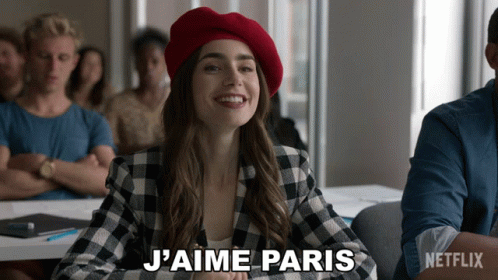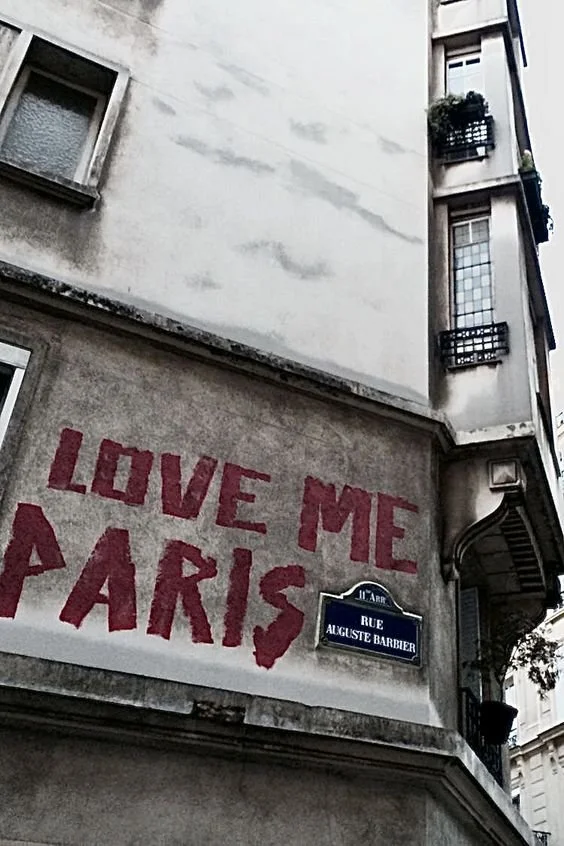The Paris Diary: Questioning if Paris is My Dream City
Written by Elena Chen
At some point when I was 22 and had just gotten accepted into an internship with a company that had multiple international offices, the unrealistic but nevertheless alluring idea came into my head to live in several other countries before I turned 30. On the provisional list was Japan, Korea and Denmark. I had visited Copenhagen in the winter and thought the simplicity of Nordic design against the lushest slates of snow to definitively be one of the most endearing ambiences that exist. France was not on the list. I did not entertain the thought of moving to a country where I spoke neither the language nor had existing friendships in. Here I am in Paris and nearing 30. Whenever I told people about this “dream” I had of living in all these places I saw hints of impossibility and doubt flash across their faces and I understood it because I too had no real clue how I would realize these plans. Now that I’m here in Paris, even if it hadn’t made it to my list before, I can now confirm that it should have been on there.
However, I need to do a little smashing of the rose-tinted glasses. Because after the Netflix hit show Emily in Paris I think we just all got an even more skewed idea of this city. As Parisian apartments hold their fort as luxury goods, eating out has also risen to an almost cult-like status. I won’t mention the restaurants that are impossible to get into (ahem, Clamato) or the lines that never seem to end, but what I have discovered is that this city has done a lot of curbing to stay idyllic. For example, the mayor put in place some strict rules about road traffic a few years ago that were met with a lot of criticism and pushback. Now, I think anyone within Paris can really feel the difference. Less air and noise pollution, less nuisance in general and a much more pedestrian city that can be enjoyed by visitors and residents alike. I doubt there are such positive consequences to the housing market in Paris as well but one can hope. Regulating the traffic was an intentional governmental move to make the city more enjoyable. There are some things that don’t work as well and may not have such actionable solutions.
On a personal level, I think the psychological and social impact of being a “foreigner”, non-francophone immigrant, should be given emphasis. I strongly encourage anyone who’s considering moving to Paris or France to go to a dedicated language course in the country where you can have the most immersive experience possible. I am extremely fortunate because other than the 20hr/week French course I take, my partner is French and I have many opportunities to practice the language. My progress in the last year in this city has been astronomical in comparison to the year I spent studying in Los Angeles before moving. Even then, I have noticed many small, seemingly insignificant, incidents where my “lack of” fluency in French has created a psychological shift in me. I passed by this bakery I love the other day and saw they had a recruitment sign up and I immediately got the jitters – I was interested in trying it out. But then I thought about having to serve customers in French and having to socialize with my coworkers in French and almost instinctively my mind started listing reasons I shouldn’t take the job. “It’d be too hard”, “I’d be exhausted having to effortfully communicate and worry if I said the wrong thing”, “What if I’m not interesting or fun in French”...etc. Then at an apéro a few weeks ago, amidst all the wonderful drinks and nibbles, I heard a friend recounting the story of how I started reading Le Petit Prince more than a year ago. I still haven’t finished that book. And I can now, because I actually feel much more confident with passe simple (a specific tense used almost exclusively in literature) and my general level of vocabulary is at a place where I can understand 90% of the book instead of the 60% a year ago. But it was so frustrating to not be able to read one of my favorite books that I already read 3 or 4 times in English and a book meant for children at that. I must admit, it made me feel a bit like a child who was being spoken about by their parents sharing stories around the dinner table. Except it wasn’t exaggerated for comedic effect – I was quite simply reliving my childhood as an adult. Very Poor Things-esque. Because I still struggle with not being able to say things casually and having to worry about really simple things like: “did you guys end up going then?” Or “hang on”, turns of phrase that I wouldn’t give a second thought about in English or Mandarin. I have become increasingly self-policing and I just stay quiet sometimes. Like a child, learning and relearning how to be social when you don’t know how people are going to react to what you’re saying.
As if the people in Paris know about this infantilizing experience themselves, I have been met with so much patience and kindness and gentleness. The immigrant man at my local repair shop who made a joke in his also accented French. The store clerk at the supermarket downstairs who waited as I found the right word for pine nuts and helped me find them. He didn’t try to finish my sentence or correct my pronunciation or have an “AHA” moment of finally understanding what I said. It was kind and respectful. Because I was in a way vulnerable to his reaction and waiting to learn from this interaction what to expect from those around me in regards to my expressive language abilities. What I hadn’t taken into account before moving here is that this is a city with so much more diversity and respect for difference than I imagined.











